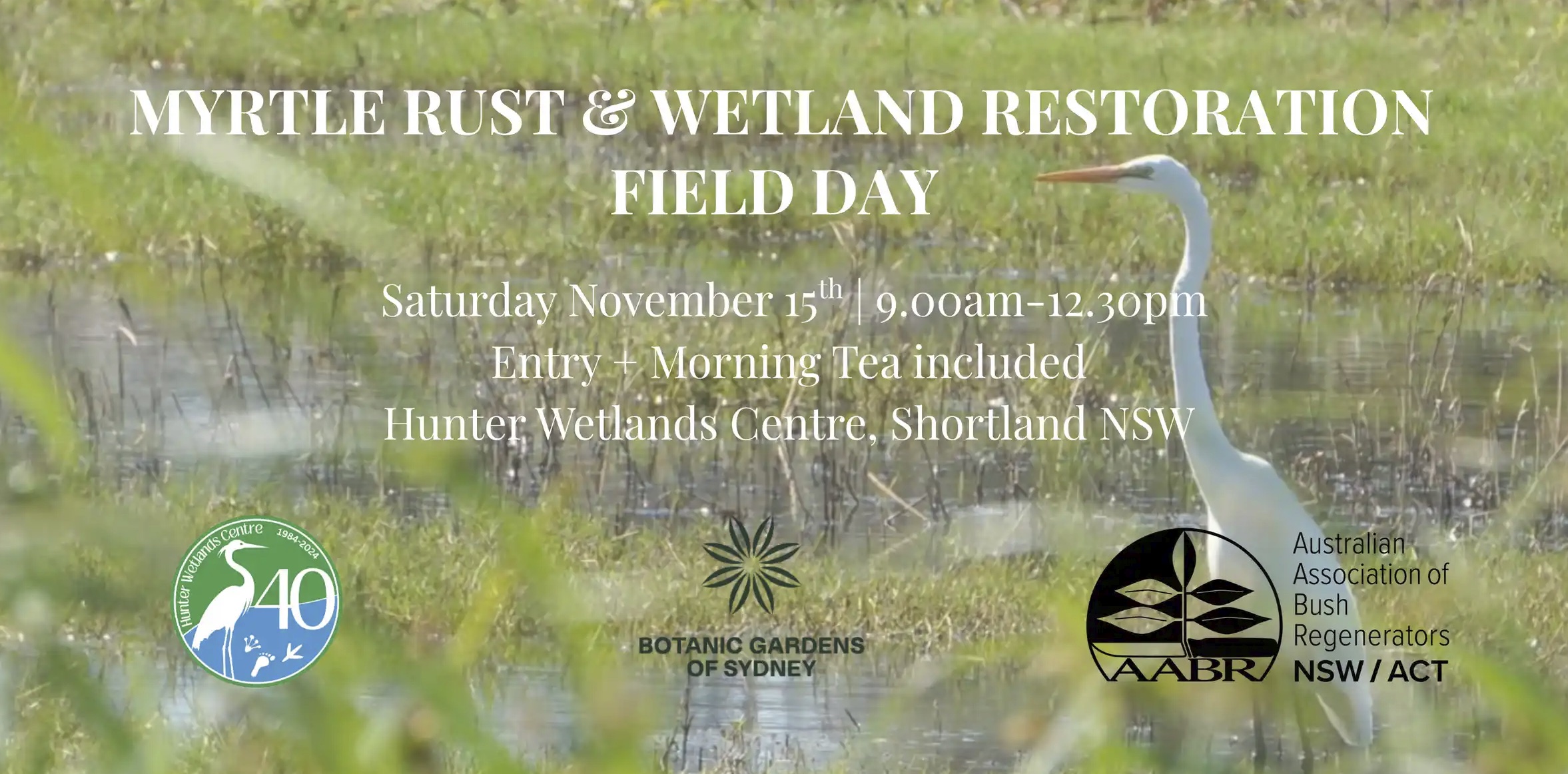Myrtle Rust Field Day


Join the Australian Association of Bush Regenerators at the Hunter Wetlands Centre for a field day exploring Myrtle Rust impacts, current research, and restoration in practice.
The day will focus on understanding the disease Austropuccinia psidii and how practitioners and researchers are working to mitigate its effects.
We will begin with a presentation from Karina Guo, PhD candidate with the University of Sydney and The Research Centre for Ecosystem Resilience (ReCER), whose research focuses on Melaleuca quinquenervia (Broad-leaved Paperbark) and genetic resistance to Myrtle Rust.
Participants will then visit field sites to identify symptoms in situ and observe experimental plantings from Karina’s study.
Following this, volunteers from the Hunter Wetlands Centre will lead a guided tour showcasing their extensive wetland rehabilitation work—transforming 45 hectares of former wasteland into a thriving wetland of international significance.
Event registration includes entry to the Hunter Wetlands Centre and morning tea from the on-site café.
About the Speakers & Partners
Karina Guo
A PhD student supervised by Prof. Glenda Wardle and Dr. Jason Bragg. Working on Melaleuca quinquenervia (Broad-leaved Paperbark) and their resistance against the plant disease Myrtle Rust. Collaborating directly with on-ground restoration practitioners, she aims to help bridge the gap between science and restoration action. From using genetics to long-term surveys of planted trees, this project spreads across multiple different facets of restoration - all feeding into a better understanding on how to combat myrtle rust in Australia
ReCER (Research Centre for Ecosystem Resilience)
The Research Centre for Ecosystem Resilience (ReCER), part of the Botanic Gardens of Sydney, uses innovative science and technology to investigate the factors impacting the distribution and assembly of plant species. ReCER helps guide the restoration and conservation of resilient ecosystems through technologically advanced large-scale genomic projects.
Hunter Wetlands Centre
Hunter Wetlands Centre is a community run not-for-profit organisation helping to restore and protect wetland environments in Newcastle, Australia. Their Mission is to support the conservation, restoration and wise use of wetlands for people and nature. They are experts in wetland restoration, having restored 45 hectares of what was a dumping ground into Wetlands of International Significance. As a self-funded, community-owned, not-for-profit charity, the Hunter Wetlands Centre is an essential organisation in environmental conservation

.webp)


%20(Document%20(A4))%20(3).png)

%20(Document%20(A4)).jpg)
%20(Document%20(A4))%20(4).png)


%20(Document%20(A4))%20(5).png)
